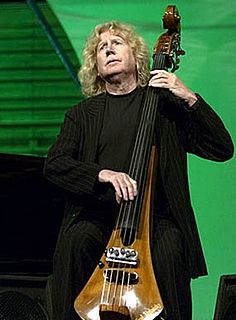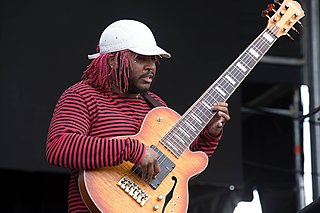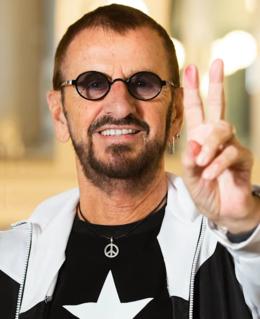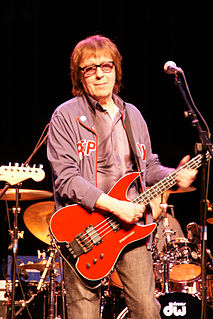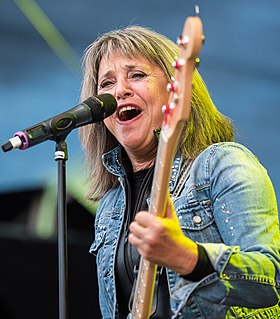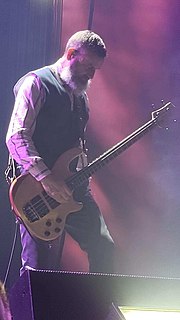A Quote by Serj Tankian
If you're using live bass versus orchestral bass, you've got to make sure that you're not stepping on the toes of the other elements, so you've got to balance it out.
Related Quotes
I don't look at my instrument as having one specific role; I was raised to go as far as you can. But Raphael Saadiq hated my bass. He told me to throw it away. And playing in Snoop's band, there was a time when my bass was more annoying to everyone than helpful. They would get on my case: 'Can you make your bass sound like more of a bass?'
Eventually as a teenager, I was pulled up on stage by James Brown's saxophone player, Maceo Parker, during one of his concerts and scatted on his stage for 20 minutes. After I was done, Maceo's bass player got down on one knee as if he were proposing, took a string off of his bass guitar and coiled it up around my ring finger. He hushed the crowd and said into the microphone, "Wendy, from this day forward you are married to music. You have a gift from God. You must devote your life to using this gift or else you will deprive the world of something so special." I got the chills.
Instead of thinking in terms of chords, I think of voice-leading; that is, melody line and bass line, and where the bass line goes. If you do that, you'll have the right chord. [These voices] will give you some alternatives, and you can play those different alternatives to hear which one suits your ear. Keep the bass line moving so you don't stay in one spot: if you have an interesting bass line and you roll it against the melody, the chords are going to come out right.


